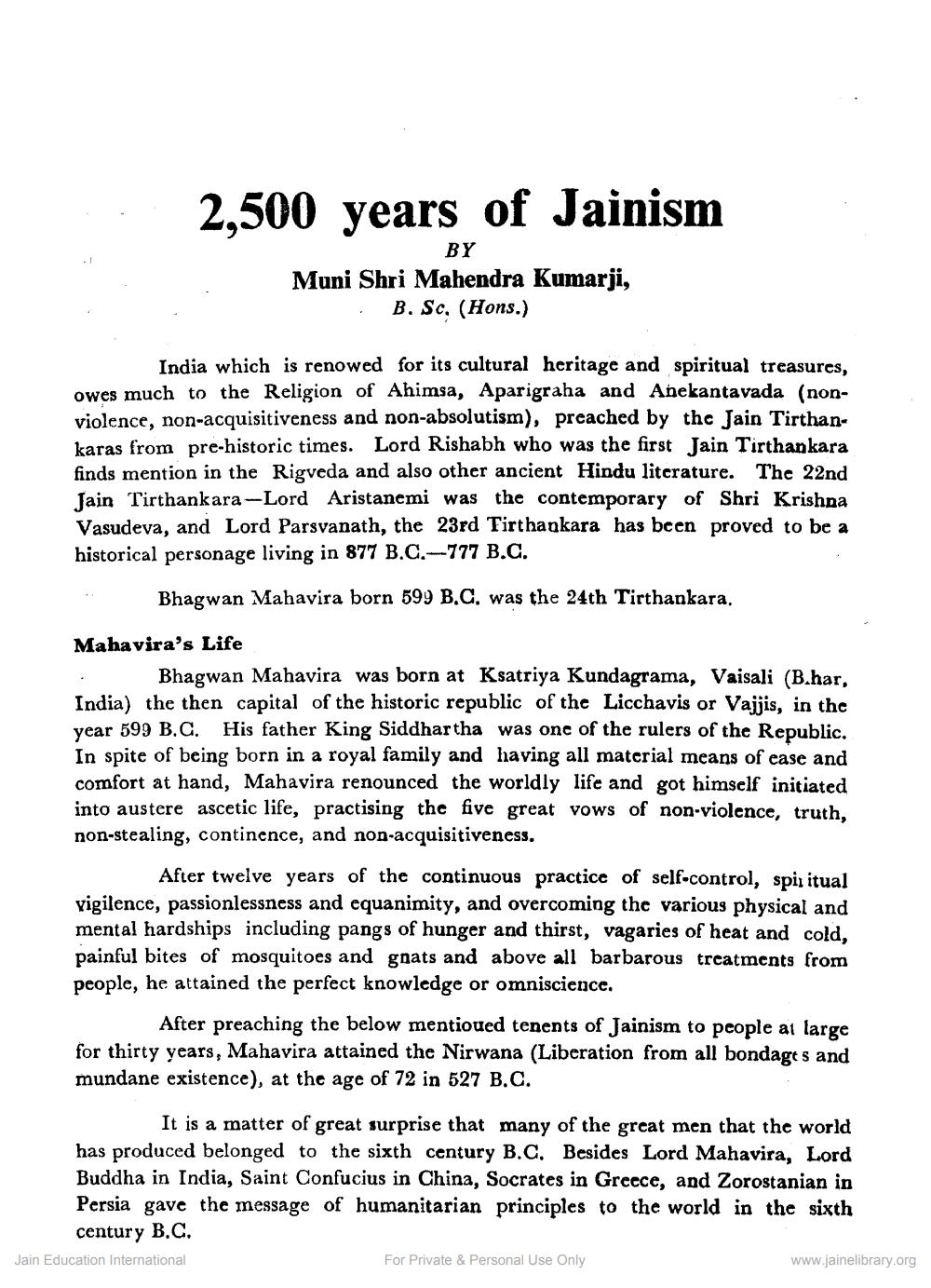________________
2,500 years of Jainism
BY
Muni Shri Mahendra Kumarji, B. Sc. (Hons.)
India which is renowed for its cultural heritage and spiritual treasures, owes much to the Religion of Ahimsa, Aparigraha and Anekantavada (nonviolence, non-acquisitiveness and non-absolutism), preached by the Jain Tirthankaras from pre-historic times. Lord Rishabh who was the first Jain Tirthankara finds mention in the Rigveda and also other ancient Hindu literature. The 22nd Jain Tirthankara-Lord Aristanemi was the contemporary of Shri Krishna Vasudeva, and Lord Parsvanath, the 23rd Tirthankara has been proved to be a historical personage living in 877 B.C.-777 B.C.
Bhagwan Mahavira born 599 B.C. was the 24th Tirthankara.
Mahavira's Life
Bhagwan Mahavira was born at Ksatriya Kundagrama, Vaisali (B.har, India) the then capital of the historic republic of the Licchavis or Vajjis, in the year 599 B.C. His father King Siddhartha was one of the rulers of the Republic. In spite of being born in a royal family and having all material means of ease and comfort at hand, Mahavira renounced the worldly life and got himself initiated into austere ascetic life, practising the five great vows of non-violence, truth, non-stealing, continence, and non-acquisitiveness.
After twelve years of the continuous practice of self-control, spiritual vigilence, passionlessness and equanimity, and overcoming the various physical and mental hardships including pangs of hunger and thirst, vagaries of heat and cold, painful bites of mosquitoes and gnats and above all barbarous treatments from people, he attained the perfect knowledge or omniscience.
After preaching the below mentioued tenents of Jainism to people at large for thirty years, Mahavira attained the Nirwana (Liberation from all bondages and mundane existence), at the age of 72 in 527 B.C.
It is a matter of great surprise that many of the great men that the world has produced belonged to the sixth century B.C. Besides Lord Mahavira, Lord Buddha in India, Saint Confucius in China, Socrates in Greece, and Zorostanian in Persia gave the message of humanitarian principles to the world in the sixth century B.C.
Jain Education International
For Private & Personal Use Only
www.jainelibrary.org




